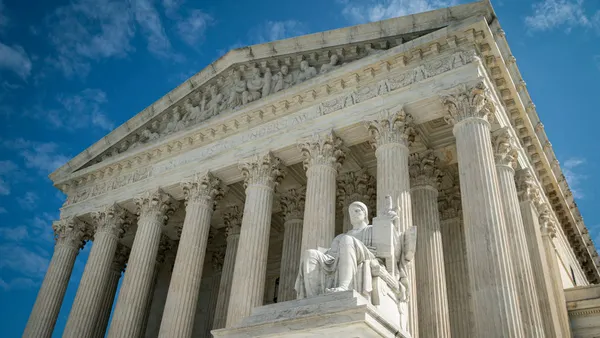Dive Brief:
- A Mississippi teacher’s age discrimination claim can move forward because her employer’s explanation for failing to promote her — that another candidate was a "better fit" — wasn’t specific enough to defeat the case at the summary judgment stage (Cunningham v. East Tallahatchie School District, No. 4:19-cv-10, (N.D. Miss. Aug. 4, 2020)).
- Cora Cunningham sued her school district, alleging age discrimination and retaliation after it hired younger men for the assistant principal and principal positions she sought. Cunningham, whose experience included three years as an assistant principal, was 57 at the time, according to court documents. Among other things, a hiring manager at one point said the man selected for one of the jobs would be a "better fit."
- The federal district court denied the school district’s request for summary judgment. While the hiring manager’s subjective beliefs about Cunningham’s fitness for the positions may be true, the court said, the employer failed to offer a sufficiently clear, nondiscriminatory reason for failing to promote her.
Dive Insight:
Employers often can defend a discrimination claim when they can demonstrate a legitimate, nondiscriminatory reason for an adverse employment action. For example, the 5th U.S. Circuit Court of Appeals recently ruled that a Mississippi deputy clerk was fired because of a budget shortfall, not bias. Lowe's similarly defeated a worker's allegations of age and disability bias because it was able to show legitimate business reasons for an employee's transfer to a new store and investigation into his conduct. And the U.S. Forest Service prevailed in a lawsuit because it showed that a worker's reassignment was the result of budget cuts, not gender and age bias.
Documentation can be an important element of an employer's defense in a lawsuit alleging harassment or retaliation. Experts have said that managers should be trained to thoroughly document everything. A candidate who applied several times for a teaching position at an elementary school, for example, was unsuccessful in her lawsuit alleging age discrimination because the school district was able to show legitimate, nondiscriminatory reasons for choosing the other applicants.
Because of the potential for accusations of discrimination in hiring and promotions, HR may want to develop written criteria for evaluating candidates closely tied to business needs and ensure the standards are consistently applied to all applicants, experts say. They also recommend that HR create diverse hiring panels, develop standardized interview questions and even consider removing information such as candidates' names from job applications.










